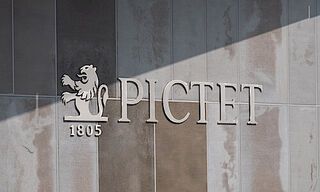Sweden is attempting to deal with the corona pandemic with fewer bans than most of its European neighbors. Economically, the liberal approach seems at least not to have more harm to the Nordic nation's economy.
Catastrophes usually put people in the public eye that are normally not even known to a wider audience. Daniel Koch is one example – the Swiss «Mister Corona» and head of infectious diseases at the Swiss health department. Another is Anders Tegnell – his counterpart in Sweden. Both have shot to fame and both have been thrust into a position of enormous responsibility.
Koch in a way was «lucky», because for one the Swiss strategy was strongly impacted by the ghastly experiences in neighboring Italy, which prepared the ground in Switzerland for the tough measures taken by the government. And secondly, because his strategy was largely in line with what neighboring countries had implemented.
Tegnell Stands for Sweden Liberal Approach
Tegnell, by contrast, prescribed a way that was unique among Western European states and hence his personal future has become strongly linked to the fate of the development of corona in Sweden.
Today, as Switzerland has arrived on the infinitely better side of the (first?) wave of the pandemic, the general public's focus has shifted toward the government's exit strategy and the speed with which the easing of measures is completed. With this shift, the discussion has become deeply political in nature. The public gaze no longer is as much on «Mister Corona», who reached retirement age during the pandemic, as it used to be.
Finnish Words of Concern
Tegnell, by contrast, is facing stiff headwinds – 22 scientists have called him and colleagues «civil servants without talent» and demanded that the government should finally take drastic, radical action against the virus' spread.
Their criticism was based on what neighbors to the west (in Norway) and east (in Finland) were saying: Finland's President Sauli Niinistö, for instance, suggested that you couldn't expect people not to go to the restaurant when you allowed them to stay open, according to Swedish daily «Dagens Nyheter».
All the strategies essentially are trying to achieve the same thing: preventing an overload of the health care system, while we are waiting for the release of a vaccine against corona or at least a drug against the symptoms of the virus. And at the same time stop the economy from collapsing.
Is Switzerland Too Hesitant?
Both Sweden and Switzerland have recorded significant numbers of casualties, but in both countries, the hospitals remained in full working order. Tegnell said that in Sweden's case, this was due to the fact that the wave of infections had hit the country relatively late, which had given the authorities time to prepare their response.
But what about the economy? Sweden no doubt has taken a substantial risk with its liberal approach. The criticism leveled at the Swiss government's strategy of a slow, step-by-step return to normality in a way is linked to the hope that the Swedish way is successful in keeping the economy running.
Steep Increase in Unemployment
It is too early to make a judgment about which approach was more successful. The effects on the Swiss and Swedish economies – both of which in many ways are comparable – have been similar, not least as both countries earn a lot of money from exports.
Unemployment has been rising in Sweden and Switzerland (in Sweden the starting point was higher). While Swiss economists expect a level of up to 7 percent under the worst-case scenario (from a current 2.9 percent), Sweden expects to reach a double-digit figure from a current 8 percent.
How Quickly Will the Economy Recover?
The latest set of numbers published by the Swedish government on Monday showed that the increase of unemployment had started to level off. Whether this was due to the strategy applied by the country's epidemiologists or not, is hard to tell. But it helps for sure that the catering industry did not have to shut down. Restaurants have been told to take precautions, but unlike in Switzerland, people can still go and enjoy a meal out.
Handelsbank, one of the big commercial banks of Sweden, expects the economy to contract about 7 percent this year and unemployment to reach a level of 11 percent. For next year, the bank forecast a recovery with 5 percent growth and lower jobless numbers.
Like the Swiss National Bank, Sweden's central bank also promised to make available a huge amount of money (500 billion Swedish kronor, which corresponds to about 50 billion francs) to keep businesses from going bust. And the state is also helping out with measures that are similar to those of the Swiss government.
- We'd like to hear from you! Participate in our reader survey by 30 April, and you can win one of five sets of two bottles of wine from Maison Albert Bichot.

























